Kindness Helps with Pain Relief
The Impact of Kindness on Pain Management

Kindness is a powerful and often underestimated tool in the realm of pain management. The way we are treated, supported, and cared for during times of physical discomfort can have a significant impact on our experience of pain. Research has shown that acts of kindness, empathy, and compassion can not only alleviate emotional distress but also contribute to the reduction of perceived pain levels.
The Science Behind Kindness and Pain Relief
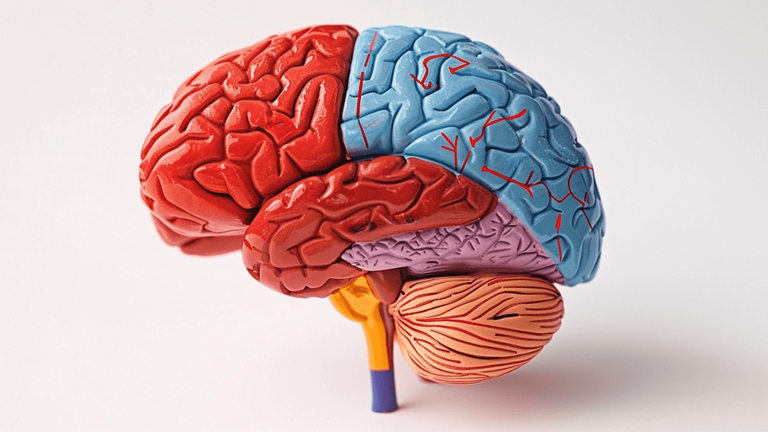
Kindness has psychological benefits and a scientific impact on pain perception. Research suggests that acts of kindness can lower cortisol levels, a stress hormone that exacerbates pain. Kindness can also increase endorphins, which are the body's natural pain relievers, and stimulate pleasure centers in the brain, reducing the sensation of pain. So, when experiencing pain, consider practicing kindness as a science-backed method for pain relief.
The Connection Between Kindness and Pain
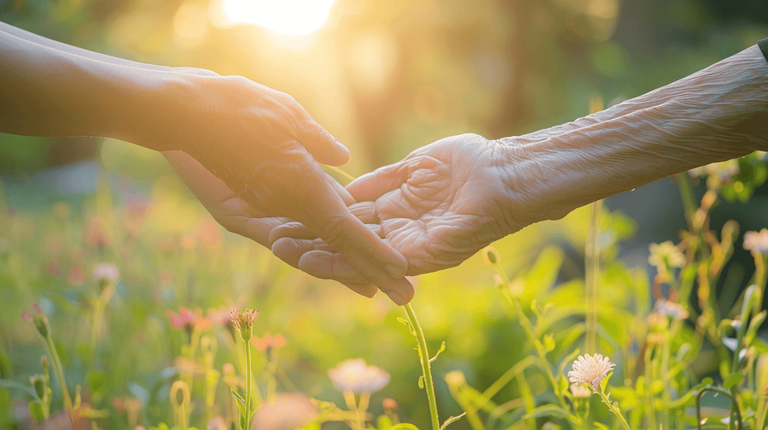
Kindness can significantly impact pain perception by triggering the release of neurotransmitters like dopamine, serotonin, and endogenous opioids. These chemicals not only enhance mood but also provide pain relief. Acts of kindness foster connections and strengthen social bonds, reducing the perception of pain. Therefore, spreading kindness can have a positive effect on well-being and pain management.
Studies Showing Kindness Reduces Pain

Several scientific studies have demonstrated that being kind can aid in reducing pain. For example, a study in the American Journal of Lifestyle Medicine revealed that interventions centered around compassion in a group setting effectively decreased pain levels and improved mental well-being. Another study indicated that engaging in practices related to compassion and loving-kindness positively affected people's perception of chronic pain. These research results indicate that acts of kindness can significantly contribute to pain management and overall well-being. Therefore, the importance of kindness in pain relief should not be overlooked.
Psychological Benefits of Kindness

Kindness not only involves helping others but also brings significant psychological benefits. When we perform kind acts, we experience fulfillment and purpose. It enhances our self-worth, improves our capacity to empathize with others, lifts our spirits, reduces stress by decreasing blood pressure and cortisol levels, strengthens our sense of connection, and enhances our relationships with others. Small acts of kindness can have profound psychological effects.
Emotional Well-being and Pain Management

Kindness is essential in managing pain as it can uplift, comfort, and provide valuable emotional support. Acts of kindness, whether through words, gestures, or simply being present, offer solace and reassurance in difficult times. They serve as a reminder that we are not alone and that others care. Kindness helps soothe the soul, alleviating the emotional burden that often accompanies physical pain. It provides comfort, understanding, and empathy, offering us the resilience to persevere.
Personally, experiencing kindness during challenging times has brought me great comfort and made the journey more bearable. Whether it's a friend listening or offering a hug, these acts reinforce that our identity is shaped by love and care, not by pain. Let's practice kindness and support each other during tough times; even small acts of kindness can have a significant impact.
Social Connections and Support Networks

Being kind can help reduce stress and anxiety caused by physical pain. It provides comfort, support, and lessens the emotional impact of pain. Kindness creates a sense of safety and trust, lowering stress levels. It also helps focus on positive emotions, diverting attention from pain. Acts of kindness nurture relationships, reducing feelings of isolation and anxiety. Small acts of kindness can calm the mind and ease emotional struggles.
Using kindness to cope can effectively reduce stress and anxiety, improving overall well-being. Having a supportive social circle is important for managing pain, as friends and family offer comfort and assistance. Being compassionate benefits both others and ourselves by building connections, reducing loneliness, and easing stress. Let's build strong relationships and use compassion to relieve pain!
The Role of Compassion and Empathy in Pain Relief

Compassion and empathy act as superpowers in alleviating pain. Understanding and caring for someone's feelings provides support and validation. Compassion takes it a step further by actively seeking to alleviate others' suffering. Receiving empathy and compassion fosters a sense of connection and belonging, reducing one's own pain and discomfort.
Kindness serves as a reminder that we are not alone in our struggles, bringing comfort and relief during difficult times. Practicing kindness towards ourselves and others can significantly reduce pain.
Mindfulness and Mind-Body Connection

Incorporating mindfulness and acts of kindness into our daily routines can significantly aid in pain management. By immersing ourselves in the present moment and being attentive to our thoughts and emotions, we can better acknowledge our pain and respond to it with compassion.
Engaging in altruistic behaviors, such as offering assistance or words of kindness, not only brings joy to others but also helps alleviate our own suffering. The practice of mindfulness coupled with acts of kindness demonstrates how love and empathy can effectively mitigate pain, highlighting their profound impact on overall well-being.
Mindfulness enables us to focus on the present, observe our mental state without judgment, and approach any pain we experience with understanding. Likewise, showing kindness towards others not only benefits them but also contributes to easing our own pain.
The remarkable power of love and empathy in reducing suffering underscores the importance of integrating these practices into pain management routines. Being compassionate towards ourselves and extending kindness to others can trigger positive responses in our brains, ultimately diminishing the intensity of pain. Therefore, incorporating acts of kindness into our pain management strategies is crucial for shaping our perception of pain and enhancing our coping mechanisms.
The Lasting Impact of Kindness on Alleviating Pain

Kindness has a powerful and enduring impact on alleviating pain. Being kind not only offers immediate help but also generates positive effects that extend beyond the present moment. Acts of kindness can nurture connections, offer support, and help individuals cope with pain more effectively. Kindness cultivates positivity and resilience, facilitating the navigation of challenging situations. By spreading kindness, we can uplift others and help create a compassionate and healing environment. Let's adopt kindness to provide relief to those experiencing pain. Together, we can create a positive change.
Practical Ways to Incorporate Kindness for Pain Relief
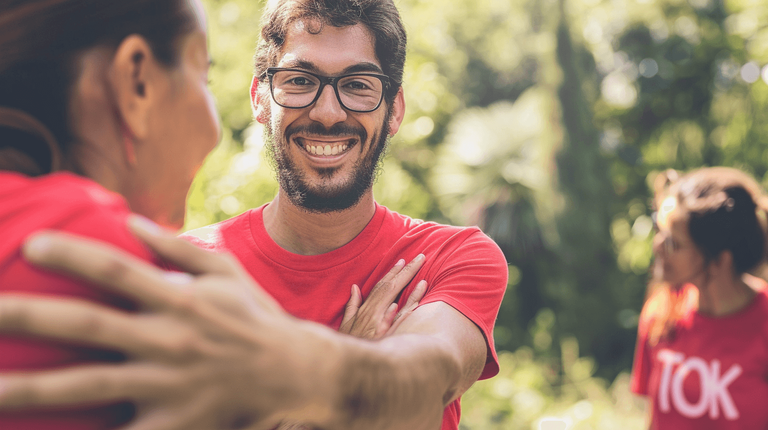
Incorporating kindness into our daily lives can significantly improve our well-being. This can be achieved through practicing gratitude, performing random acts of kindness, volunteering, being kind to ourselves, and spreading positivity. These actions create a ripple effect of kindness that benefits both ourselves and those around us.
Strategies for Incorporating Kindness:
Practice Gratitude: Take a moment daily to appreciate the kindness of others.
Express gratitude through thank you notes or verbal acknowledgments.
Random Acts of Kindness: Look for opportunities to perform small acts of kindness throughout the day.
Acts like holding the door open or offering support to a friend can make a difference.
Volunteer Your Time: Dedicate time to a cause aligned with your values.
Experience fulfillment and purpose by contributing to positive change.
Be Kind to Yourself: Extend kindness to yourself through self-care practices.
Set boundaries and engage in activities that bring joy and relaxation.
Spread Positivity: Share uplifting messages on social media or within your community.
Inspire others to embrace kindness and create a chain of positivity.
Kindness, whether through grand gestures or small acts, holds the power to improve well-being and foster a culture of compassion. Let us make kindness a daily habit and witness its transformative impact on ourselves and the world.
[24][25]
Final Conclusion

In conclusion, kindness has a significant impact on reducing pain. Scientifically proven benefits include releasing endorphins, lowering cortisol levels, and enhancing social bonds. Kindness also provides emotional support, reduces stress and anxiety, and fosters compassion and empathy. By incorporating kindness into daily life and spreading positivity, we can create a compassionate and supportive world where pain is alleviated, well-being is enhanced, and resilience is strengthened. Let's make kindness a fundamental part of our lives to experience its lasting positive effects on ourselves and others.
Some Ideas for Acts of Kindness
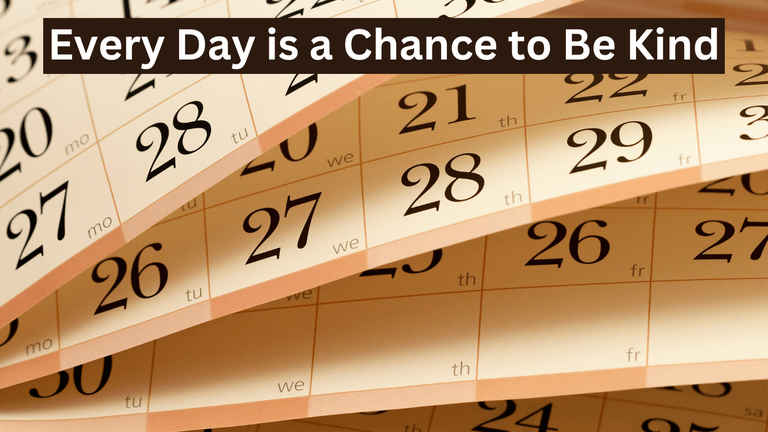
Here are a variety of thoughtful suggestions for acts of kindness that you can consider incorporating into your daily routine to spread positivity and make a difference in the lives of those around you.
- Print and hand out “You Matter” Cards
- Hold The Door Open For Someone
- Help older people with their shopping if they need it.
- Volunteer your time to help your community.
- Help out at a local soup kitchen or food bank serving meals to the homeless at a local shelter or church.
- Volunteer at a local animal shelter.
- Spend time visiting the elderly at a nursing home or assisted living facility.
- Collect donations for a local charity.
- Be a mentor to someone in need.
- Help out at a local school or after-school program.
- Help Older People With Their Grocery Shopping
- Send a random text to a friend to say hi or that you’re thinking of them.
Ideas for Self Kindness

Here Are a Few Ideas for Practicing Self-Kindness and Self-Care to Nurture Your Well-Being and Mental Health:
- Remember, you are worthy of love and kindness, always. Start with yourself, and watch the positive impact ripple outwards.
- Treat yourself to a luxurious bath. Candles, Epsom salts, soothing music - create a haven for your body & mind
- Unleash your creativity! Sing, paint, dance, write - express yourself freely and embrace the joy of being you.
- Take a moment to appreciate yourself. Look in the mirror and whisper affirmations of love & strength.
- Write a gratitude letter to yourself. Acknowledge your strengths, progress, and resilience. Celebrate YOU!
- Put on your favorite music & sing along! Unleash your inner rockstar & enjoy the energy boost.
- Cook a healthy meal for yourself. Nourish your body with delicious & nutritious food. You deserve it!
- Challenge negative self-talk. When doubts arise, replace them with affirmations of confidence & love. Be your own cheerleader!
- Get creative with a DIY project. Upcycle, decorate, or personalize something - express your unique style & have fun!
- Catch the sunrise or sunset. Witness the beauty of nature & reflect on the magic of a new day or the peace of a day ending.
- Listen to an inspiring podcast or audiobook. Learn, grow, & get lost in a story that uplifts & motivates you.
- Bring nature indoors with fresh flowers or plants. Add a touch of beauty & serenity to your space.
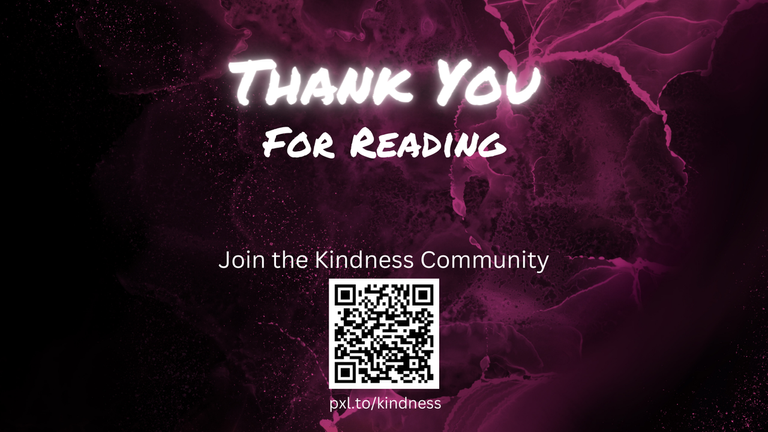
Images created using MidJourney for which I have a commercial license.
#kindness #cwh #ecency #pob #dreemport #hivekindness #kindnesschallenge #kindnessmatters #wellness